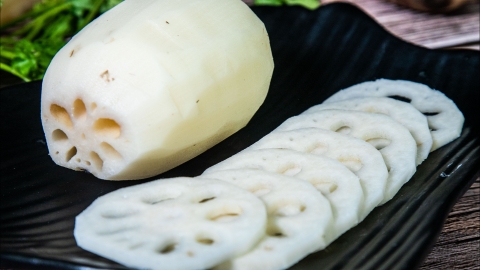Can eating lotus root during menstruation affect menstrual flow?
Generally speaking, whether eating lotus root affects menstrual flow depends on the amount consumed and individual body constitution. The specific analysis is as follows:

If lotus root is consumed in moderation and the individual has no special physical sensitivities, it usually does not significantly affect menstrual flow. Lotus root contains vitamins, dietary fiber, and minerals that help nourish the body. When cooked, lotus root has a mild nature; moderate consumption can support normal metabolism during menstruation without disrupting hormonal balance or causing abnormal increases or decreases in menstrual flow.
However, excessive consumption of lotus root, or having a cold-prone constitution with conditions such as cold uterus or menstrual pain, may influence menstrual flow. Raw lotus root is relatively cooling in nature; consuming too much may stimulate uterine contractions, potentially leading to reduced menstrual flow and worsened menstrual pain in individuals with cold uterus. Even cooked lotus root, if consumed in large quantities at once, may burden the digestive system, indirectly affecting overall physical condition and possibly causing minor changes in menstrual flow.
During menstruation, it is recommended to consume lotus root only in cooked form and avoid eating it raw. Intake should be controlled—small portions are preferable—and pairing it with warming ingredients is beneficial. If noticeable changes in menstrual flow or increased menstrual pain occur after consumption, it is advisable to stop eating lotus root and monitor symptoms, consulting a doctor if necessary.




